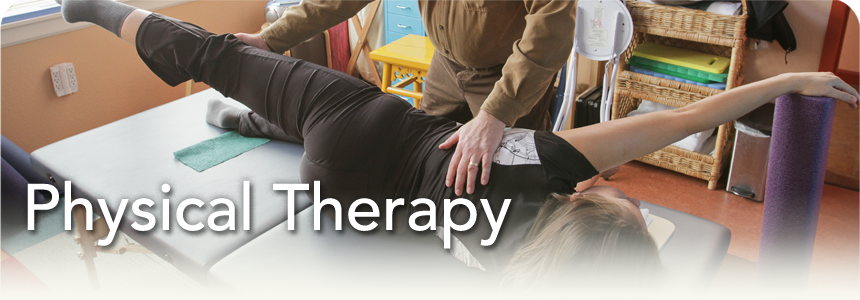Serving Tacoma - Olympia
and The South Sound Region
Our offices are temporarily closed
A Holistic Practice Based on Embodied Neuroscience, Introspective Learning, & Effective Action
Physical Therapy
Physical Therapy
Physical Therapy can treat a broad scope of conditions: musculoskeletal, neurological, trauma, chronic distress, autonomic, mind-body, psychological, and developmental. Drawing from both physical and biomedical sciences, as well as drawing from both mind (cognitive) and body (biomechanical movement) sciences.
In this, physical therapy is a noble and academically rigorous profession, and physical therapists are broadly trained to fill functional gaps between the effects of medical drugs (pharmacotherapy & biochemistry) and medical surgery.
Some Conditions We Typically Treat
Musculoskeletal Conditions:
- Back and Neck Pain/SI joint /Spine
- Headaches & TMJ
- Shoulder & Arm Pain, Rotator Cuff
- Tennis Elbow/Golfers Elbow/Tendonitis
- Hand and Wrist Pain/Carpal Tunnel
- Hip & Knee Problems
- Plantar Fasciitis/Ankle & Foot Pain
- Instability
- Other Orthopedic Conditions– Post Surgical Rehab
Neurological Conditions:
- Stroke and Neurological Conditions
- Head Trauma, Brain Injury
- Parkinson’s Disease
- Multiple Sclerosis / MS
- Dystonia, Spasticity, Paralysis
- Spinal Cord Injury
- Loss or Lack of Coordination
- Balance and Dizziness Problems
Trauma, Chronic Distress, Autonomic & Mind-Body / Psychophysiological conditions:
- Disordered Breathing
- Cardiac Rehabilitation / HRV
- Anxiety, PTSD, & Stress Related Pain
- Chronic Pain / Arthritis / Fibromyalgia
- Auto, Motor Vehicle, Work & Sports Injuries
- Numbness & Tingling / Raynaud’s
- Sleep Disorders / Insomnia
- Addictions and Body Image Concerns
Developmental Conditions:
- Pediatric Developmental Therapy
- Learning and Vision Difficulties
- Sensory Integration Disorders
- Attention Difficulties and Hyperactivity
- Metabolic Syndrome, Obesity, and Weight Gain
- Chronic Edema and Lymphedema
- IBS / Central Pain Sensitization
- Difficult or Abnormal Walking
One Distinguishing Caveat and An Encroaching Global Trend:
Over the past few decades, and throughout most of the industrialized world, much of outpatient physical therapy practice in The United States (and usual ‘physiotherapy’ practice in Canada, U.K., E.U. , Australia, etc.) has become relegated, confined, and implemented to a fitness model.
The result is that most multi-chain outpatient orthopedic and sports medicine practices are little differentiated from just joining a gym or working-out with a personal trainer in a fitness studio – but at a fraction of the cost. Why pay $100 or more per session in limited physical therapy and rehabilitation insurance benefits – just to run through a standardized workout routine?
Something We Consciously Resist-Physical Therapy’s Ubiquitous Regression to The Mean:
I refer to this status of affairs as “Physical Therapy’s regression to the mean” in the discussion section my doctoral dissertation publication.
While exercise and fitness activities are critically important, they are probably not the best starting place for persons afflicted with severely deconditioned health problems or chronic pain. Though common and universally prescriptive, most patients are just merely going through the motions, and not significantly changing their background quality of movement in such a way that they can apply to revitalize everyday life.
Quality of Movement - and especially the corresponding neurological organization of the body
– Counts! Organize it before you Exercise it!
You won’t find a whole lot of dumbbells, color-coded rubber tubing or elastic straps, inflated physioballs, or usual fitness equipment at Alliant. We prefer to first orchestrate the entire body for what matters consistently in everyday life - as a prime imperative and prerequisite for pain free movement….then ( and only then) partnering with nearby community / fitness centers and our preferred personal trainer network
for facilitating a more sustainable active lifestyle – and outside the limitations of a physical therapy clinical atmosphere – for which insurance coverage and access is time-limited.
But beyond the standard fitness model, and however it might be delivered in any particular treatment setting, I maintain through my dissertation’s concluding statements that:
"...unless there is significant change within a person's internal model for the sensory representation of effective action, becoming expressed and confirmed through new attention to new movement, then there is really no change at all..."
…and this is an area wherein The Feldenkrais Method®
fills gaps in usual physical therapy practice and affords a needed dimension that is missing in most accustomed and popular fitness routines….by alternatively emphasizing a rightful place for the sensory side of physical therapy and synergistically integrating the total body ( and correspondingly – the entire person ) as a functioning whole.
© 2024
Alliant Physical Therapy & Integral Medicine











